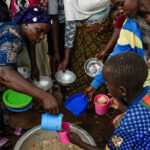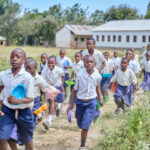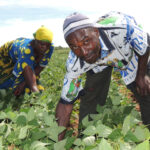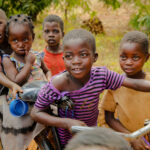In the wake of a series of recent crises that drove up global hunger and food insecurity, the world remains far off track in meeting Sustainable Development Goal 2 (SDG2)—ending hunger and malnutrition by 2030. Now, in a chaotic global environment of still more crises and complications, including cuts in official development assistance, what is the best […]
More than a meal: How school feeding programs are shaping the future
For more than a century, countries around the world have recognized school meals as a powerful tool for preventing hunger among the most vulnerable children and easing financial pressure on struggling households. Now, in the face of complex and evolving global crises such as failing food systems, malnutrition, educational challenges, economic instability, and climate change, […]
Transforming rural livelihoods: Lessons from the Africa RISING program
Sustainable agricultural development has long been heralded as a vital pathway to alleviating poverty and hunger in Africa, where smallholder farming predominates across diverse landscapes and local conditions changing due to climate impacts and other factors. Sustainable intensification (SI) approaches—tailored to local conditions—offer a range of farming techniques designed to improve growing conditions, yields, and […]
Trust the messenger? The role of AI transparency in policy research communication
A key objective of research is to ensure that audiences—including scientists, policymakers, and lay readers—find it valuable and apply it effectively. Yet, communicating research to these audiences is rarely straightforward. Readers are inundated with information, making accessible, understandable communication critical. Trust in the credibility of the content and its authors is also essential. Generative artificial […]
When school overlaps with farming: Measuring reduced educational advancement and simulating solutions in Africa
The annual school and agricultural calendars exercise near-universal influence on life in the developing world, yet until recently there was little research on the interaction between the two. In the United States, it’s a widely held belief that the typical school calendar developed around the already existing farming calendar. While some debate this (Fischel (2006) argues […]
- « Previous Page
- 1
- …
- 3
- 4
- 5
- 6
- 7
- …
- 23
- Next Page »





